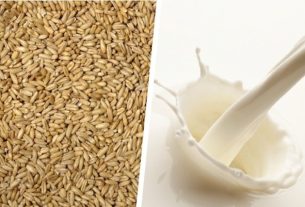Essential amino acids are amino acids obtained only through food, and are important for muscle development, skin health, the production of hormones and neurotransmitters, metabolism and regulation of the immune system.
The essential amino acids are histidine, isoleucine, leucine, lysine, methionine, phenylalanine, threonine, tryptophan and valine and can be found mainly in foods of animal origin, such as meat and dairy products.
All essential amino acids can be obtained in sufficient quantities through a healthy diet, and it is recommended that you consult a nutritionist to find out the best food options to complement your diet.

What are essential amino acids for?
The main functions of essential amino acids in the body are:
1. Help with muscle recovery and development
Isoleucine, valine and leucine, for example, are essential amino acids that help in the recovery and development of muscle tissue and, therefore, are essential for people who exercise with the aim of muscle hypertrophy.
To find out how to supplement your intake of essential amino acids for muscle development, make an appointment with the specialist closest to you:
Taking care of your health has never been easier!
2. Help keep your skin healthy
Threonine and lysine are essential amino acids important for the production of collagen and elastin, for example, which are fundamental components of the skin, helping to keep it healthy.
Furthermore, leucine, another essential amino acid, also helps maintain the skin, stimulating healing. Check out other benefits of leucine.
3. Contribute to the body’s balance
Essential amino acids are essential for the production of hormones that regulate the functioning of different organs in the body, helping to maintain the body’s balance. Leucine, for example, is important for the production of growth hormone.
4. Promote the functioning of the nervous system
Essential amino acids, such as tryptophan and phenylalanine, are essential for the production of neurotransmitters, such as dopamine, epinephrine, norepinephrine and serotonin, favoring the proper functioning of the nervous system.
In addition, other essential amino acids, such as histidine, are necessary for the maintenance of the myelin sheath, a type of covering that covers nerves and facilitates the conduction of nerve impulses. Learn more about the functions of histidine in the body.
5. Regulate the immune system
Histidine, isoleucine, lysine and threonine are examples of essential amino acids that participate in the regulation of the immune system. Histidine, for example, is necessary for the production of histamine, a substance involved in the body’s inflammatory responses.
6. Help with energy production
Essential amino acids are fundamental for energy production. Isoleucine is used to produce hemoglobin, an important protein for transporting oxygen to tissues, and leucine helps control blood sugar levels, for example.
7. Protect cells from free radicals
Some essential amino acids, such as histidine and methionine, have antioxidant action, protecting the body’s healthy cells against the action of free radicals that could damage them.
8. Promote metabolism
Threonine, methionine, phenylalanine and lysine, for example, are essential amino acids used in the production of proteins and enzymes that participate in different metabolic reactions, being fundamental for the proper functioning of the organism.
Where to find
All essential amino acids can be found in foods such as:
- Milk derivatives, such as yogurt, butter and cheese;
- Animal protein, such as beef, pork, fish and poultry;
- Cereals, such as quinoa and buckwheat;
- Whole soy sources such as tofu, edamame and miso;
- Eggs.
Foods of animal origin are considered complete proteins because they contain all 9 essential amino acids.
Although foods such as quinoa, lentils, buckwheat, nuts or seeds are not complete proteins, they can be combined with different plant protein sources to increase the biological value of proteins, especially for people who follow a vegetarian or vegan eating style.
Read too: Vegetable protein: how to enrich a vegetarian or vegan diet
tuasaude.com/dieta-da-proteina-para-vegetariano
Essential amino acid supplements
Essential amino acid supplements are normally not recommended, because all of these amino acids can be obtained through a healthy, balanced diet in sufficient quantities.
Furthermore, it is possible that inappropriate use of these supplements could affect the functioning of the kidneys or liver, be toxic to the body or cause imbalances in metabolism, for example, and it is recommended to consult a nutritionist before using them.
Check out the video below on how to supplement your amino acid and protein intake:

Sign up for our newsletter and stay up to date with exclusive news
that can transform your routine!
Warning: Undefined array key "title" in /home/storelat/public_html/wp-content/plugins/link-whisper-premium/templates/frontend/related-posts.php on line 12
Warning: Undefined array key "title_tag" in /home/storelat/public_html/wp-content/plugins/link-whisper-premium/templates/frontend/related-posts.php on line 13



